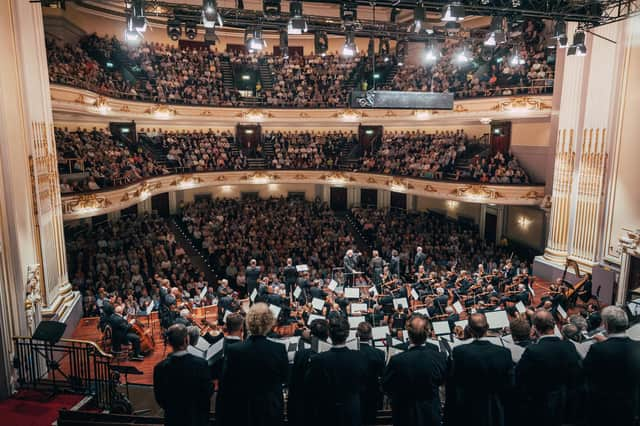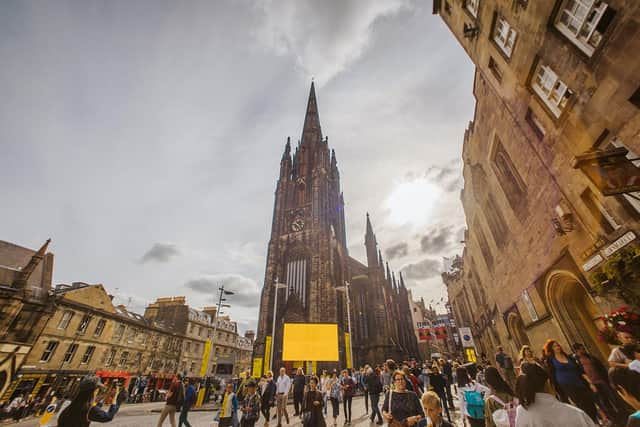Edinburgh festivals' future needs a mature discussion – Brian Ferguson


The biography of the former Royal Marine commander, who was head of the British Defence Staff in the US during the Obama administration, was even more colourful than I had anticipated for someone who had served in the Balkans, Afghanistan and Iraq.
A lengthy list of his areas of expertise included intuition, imagination, managing change, resilience, charm, team building and “wicked” problem solving.
Advertisement
Hide AdAdvertisement
Hide AdI couldn’t help but wonder how many of these attributes he will have to call on after heading into battle with one of Edinburgh’s most formidable and feared forces, the Cockburn Association.
It would be wrong to suggest Edinburgh’s long-running heritage watchdog has been the only organisation or campaign group to attempt to rally support to tackle “festivalisation” and “overtourism” in the city in recent years – but it certainly has had the highest profile and impact with its efforts.
The scrapping of the Marketing Edinburgh agency and the drawing up a new tourism strategy shifted the city away from a long-standing growth agenda and were heavily influenced by the Cockburn’s work.
Concerns over the impact of Edinburgh’s summer and festivals on the city reached a peak throughout 2019 when they attracted their highest ever audiences but more negative headlines than ever.


Just over a year ago, it was clear change was in the air.
Advertisement
Hide AdAdvertisement
Hide AdJulia Amour, director of umbrella body Festivals Edinburgh, admitted the era of “growth for growth’s sake” was over and that reinvention of the festivals was needed.
She issued a public plea for the city to come together to tackle key areas of concern, warning: “Polarised views won’t help find workable solutions.”
Within weeks, all of Edinburgh’s summer festivals were called off and they have been in survival mode ever since.
Their return is shrouded in uncertainty over what restrictions which will be in place in August and how viable events will be. Festivals Edinburgh has been understandably lobbying for financial support for its members.
Advertisement
Hide AdAdvertisement
Hide AdThis has been interpreted by the Cockburn Association as a drive to get “back to normal, ASAP”.
Its chair, Cliff Hague, went as far as to suggest in a recent blog that the city council, the Scottish government and the festivals/tourism industry, “operate in an echo chamber, insulated from real engagement with civil society in the capital", and claimed they were plagued with a mindset, “that drove RBS to disaster in 2008”.
Within days, the Cockburn was accused by Major General Howes of pursuing their own agenda – to turn Edinburgh into an “empty medieval theme park”.
Edinburgh’s festivals are undoubtedly focused on getting back on their feet.
Advertisement
Hide AdAdvertisement
Hide AdBut they have a huge job to do to bring organisations like the Cockburn Association to the table and overturn the lingering perception that these events are staged to generate international visitors.
The reality is that most of their audiences are drawn from around Scotland and in the case of some festivals within the city’s own boundary. With the fate of more than 6,000 jobs on the line, the future of these events deserves civilised, mature discussion rather than inflammatory interventions.
A message from the Editor:
Thank you for reading this article. We're more reliant on your support than ever as the shift in consumer habits brought about by coronavirus impacts our advertisers.
If you haven't already, please consider supporting our trusted, fact-checked journalism by taking out a digital subscription.
Joy Yates
Editorial Director
Comment Guidelines
National World encourages reader discussion on our stories. User feedback, insights and back-and-forth exchanges add a rich layer of context to reporting. Please review our Community Guidelines before commenting.